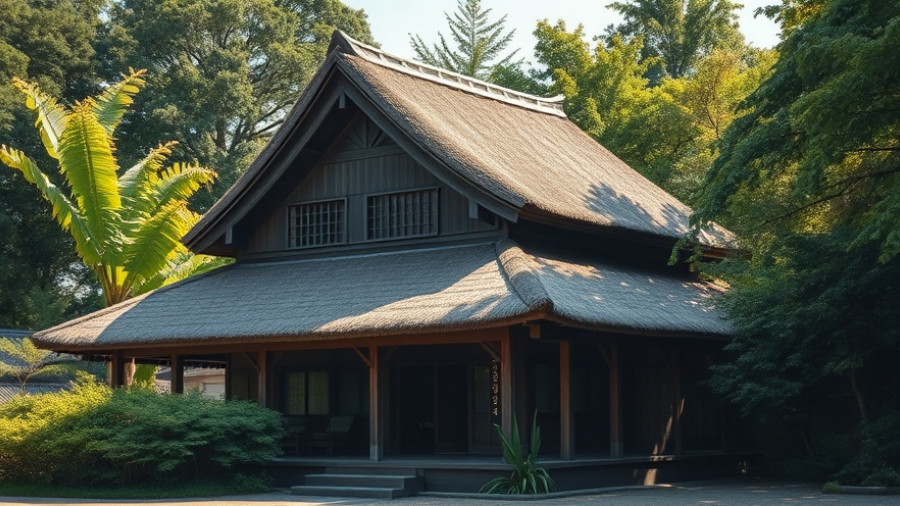
Discovering the Roots of Sake Brewing: A Sustainable Journey
Sake brewing is not just a skill; it reflects a thoughtful approach to sustainable living, interwoven with Japan's rich culture and natural resources. What many may not realize is that the journey to perfecting this traditional beverage stems from the intertwined existence of living organisms and rice. The delicate balance of these elements fosters not only a unique flavor but also an ecological consciousness that could inspire boutique hospitality professionals.
The Role of Living Plants and Microorganisms
The foundation of sake brewing lies in rice, known for its flawless fermentation properties. But rice doesn't thrive alone; it relies heavily on its ecosystem, which includes microorganisms like koji mold and yeasts. These living things work in harmony, creating a rich environment that transforms plain rice into the beloved beverage. By grasping this interconnectedness, boutique hospitality professionals can appreciate the tender balance of nature that enhances their services, promoting a strong story around locally sourced beverages like sake.
Linking Sustainability and Circular Economy
In recent years, the concept of a circular economy has gained traction, especially within the food and beverage industry. Sake brewing echoes these principles, where every aspect of the process is utilized and nothing is wasted. Leftover rice and by-products can be transformed into various culinary treats or composted, thus promoting a zero-waste ideology. This not only minimizes environmental impact but aligns perfectly with the values of boutique hotels and eco-lodges seeking to implement sustainable practices. By partnering with local brewers who share these values, businesses can enhance their offerings while promoting ecological responsibility.
Transforming Supply Chains: A Path Towards Regenerative Business
Consider how implementing regenerative business practices can reshape supply chains within hospitality. By sourcing ingredients like sake from breweries that prioritize sustainability, boutique accommodations can embrace a restorative approach. Not only does this support local economies, but it also presents an opportunity to educate guests on the importance of corporate social responsibility and sustainable innovation in everyday operations, contributing to the patrons’ overall experience.
Practical Insights for Boutique Hospitality Professionals
Integrating sustainable practices into your operations doesn’t need to be daunting. Here are actionable steps that can be taken:
Curate a Sustainable Drink Menu: Feature locally produced beverages like sake to support regional producers while offering guests unique experiences.
Educate Guests: Incorporate the story of rice and living organisms in sake brewing into your services, whether through tastings or informational pamphlets, to enhance guest experience.
Reduce Waste: Collaborate with local farms to repurpose expired ingredients from the kitchen, embracing a zero-waste philosophy in your establishment.
Embracing a Future rooted in Traditional Practices
As we continue to evolve in the hospitality landscape, understanding traditional practices like sake brewing can inspire innovative solutions. The future of boutique hospitality lies in highlighting cultural narratives and sustainable practices, creating deeper connections with guests. By honoring the history behind beverages like sake and supporting local ecosystems, hospitality professionals can craft experiences that resonate profoundly with visitors who prioritize sustainability.
For those in the boutique hospitality sector, this is a call to action: embrace the philosophies of zero waste, corporate social responsibility, and regenerative business. Harness these principles to enhance your lodging offerings, and you'll find that guests not only return for the exceptional experiences but also support your commitment to a more sustainable future.
 Add Row
Add Row  Add
Add 




Write A Comment